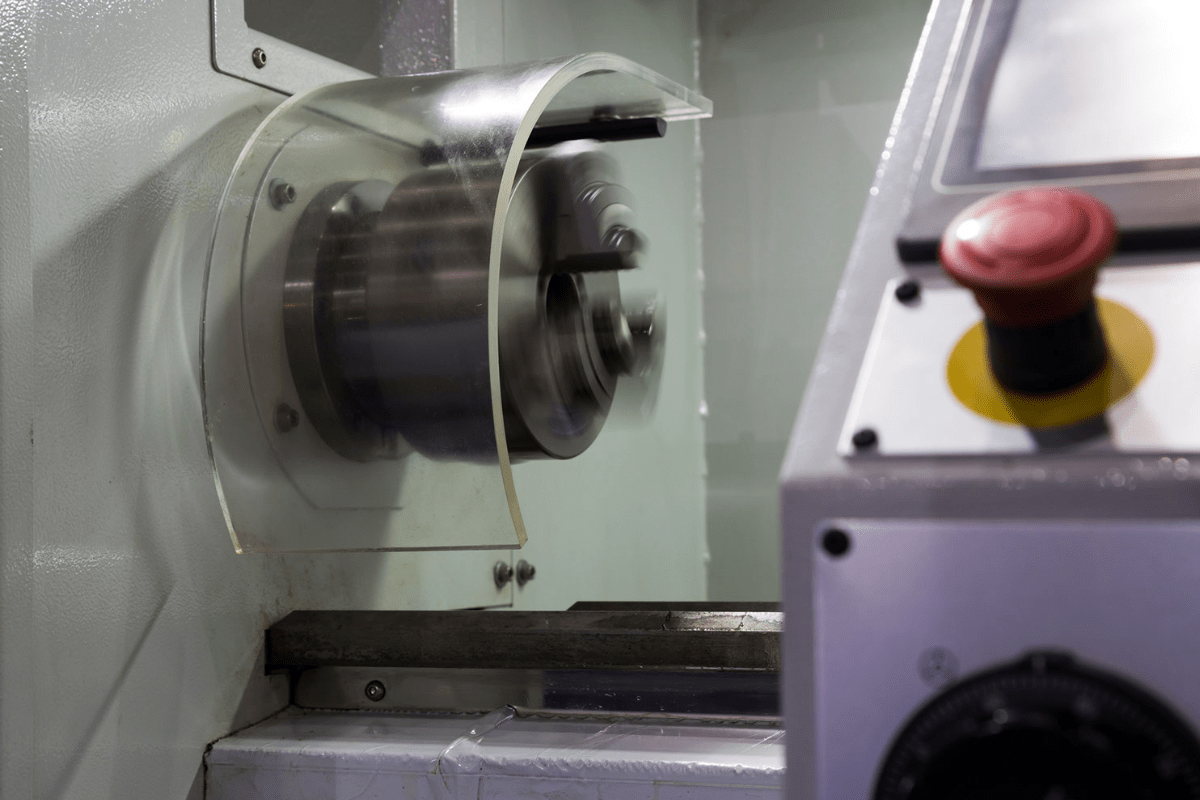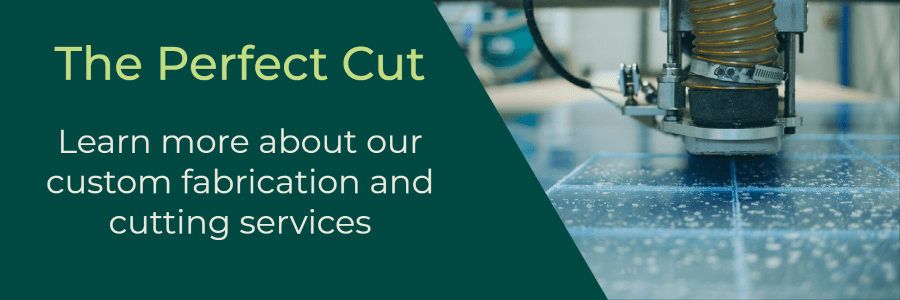Learn more about ACM Fabrication and Applications

Many businesses are required to produce massive inventory at high rates of speed. This necessity puts extensive pressure on machine shops to get the job done effectively and quickly. For this to happen, plastic is a helpful addition. There are many different types of plastic for interested companies on the market.
If you’re interested in learning more about what plastics are used in machine shops, you’ve come to the right place. Read on to learn more about the most common plastics in machine shops and why they are a helpful addition to your team. We at Laird Plastics are ready to assist with every stage of your plastic acquisition.
Common Plastics In Machine Shops
Machine shops go through a lot of wear and tear. They must produce high-quality products in large quantities within short time constraints. Plastic is an excellent tool to help these factors come to life, and our team is ready with extensive plastic offerings to meet your business needs. There are many common plastics in machine shops.
Let’s dive deeper into a few of the most common plastic selections for machine shops. We will also provide a comprehensive list of additional plastic options, ensuring you have all options available. Plastic plays a critical role in machine shops, and we are ready to meet all your supply needs.
ABS
ABS is one of the cheaper plastic offerings available. It is ideal thanks to its impact resistance, thermoforming nature, and machinability. ABS is for areas where plastic must withstand excessive force and last.
This material is excellent for control panels, machine housing, storage cases, models, and prototypes, and more. There is general, machine, and fire-graded options, depending on the role ABS will play in your machine shop.
ABS is low-cost and provides outstanding performance in the workplace. It will work with you just as much as you work with it.
Nylon
Next up is nylon. This material is stiff and strong, much more powerful than other plastic options. It’s an engineering plastic with ideal wear and bearing properties your machine shop will appreciate. It often comes in handy for replacing metal bushings and bearings.
Nylon will lower the noise in your machine shop, reduce weight, and lower the wear and tear on other components. It’s ideal for wearing pads, gears, wheels, rollers, and other items requiring a firm material.
You will receive a stiff material by investing in nylon. It’s easy to machine and fabricate and will make an excellent addition to your shop for improved results.

Polycarbonate
Polycarbonate is one of the toughest plastic materials, transparent in appearance, and easy to use. It is very stiff and can withstand powerful impacts over and over again. It’s an excellent choice if you’re hunting for plastic with quality optical clarity.
This product will work well as a machine guard, architectural glazing signage, POB displays, face shields, machine guards, conveyor systems, and skylights. In a machine shop, use it for durability. It is thirty times stronger than acrylic and two-hundred times stronger than glass. It’s also lightweight and an excellent selection for insulation.
Polycarbonate will fare well against heat and is much easier to handle than other materials. It’s practical for a layer of defense.
PVC
PVC is another selection. This plastic is durable, offering qualities like impact resistance, corrosion resistance, and chemical resistance. The material is economical, and a little will go a long way for your machine shop needs.
You can find PVC in gray and white, making it simple to fabricate and add to your system. It comes in sheets and rods of varying sizes for various uses in a machine shop.
PVC works best for valves, fittings, cable insulators, tanks, air scrubbers, and piping. It’s one of the most practical and affordable plastic selections.
Additional Plastics
These plastics are not the only selections available for machine shops. There are many selections available for your business.
Here are a few additional choices for plastics:
- Acrylic
- Acetal
- PTFE
- PEEK
- PET
- PPS
- Tapes
- UHMW
These come in handy in machine shops.
Different plastics serve different purposes in machine shops. From durability to flexibility, there is a need for variety in the structure of each plastic.
What Are Plastics Used For In Machine Shops?
There are many uses for plastic in machine shops, from sprockets to slide pads. Plastic is more than a single-use material - it can be incorporated in almost every portion of a machine shop.
Plastics come in handy for the following purposes in machine shops:
- Bearings and bushings
- Star wheels
- Sprockets
- Slide pads
- Valve components
- Wheels
- Rollers
- Pulleys
- Manifolds
- Gears
- Electrical insulation
These items serve practical purposes in a machine shop.
Plastics are necessary to keep things moving in a machine shop. From wheels for movement to electrical insulation for defense, it makes a tremendous difference
 .
.
Final Thoughts
Plastics are a quality and practical choice for machine shops. A few of the most common selections for machine shops include ABS, nylon, polycarbonate, polysulfide, PVC, and many more. These plastics are durable and provide excellent insulation, ideal for a room filled with powerful machinery and human lives.
If you’re interested in investing in plastics for your machine shop, contact Laird Plastics. We are quality suppliers, ready to provide your company with any product you might need. We have over fifty stocking locations with plastic substrates and other products to meet your business needs.

